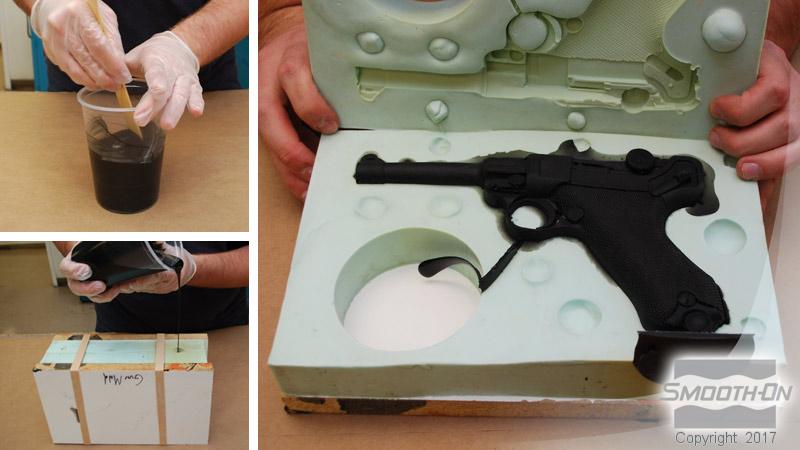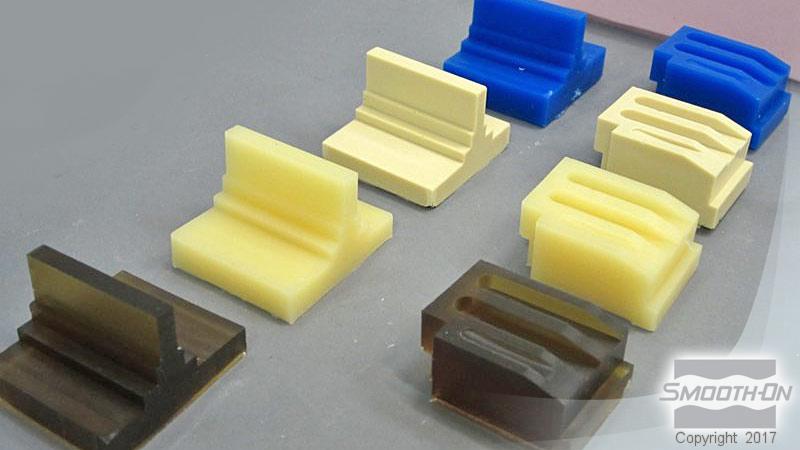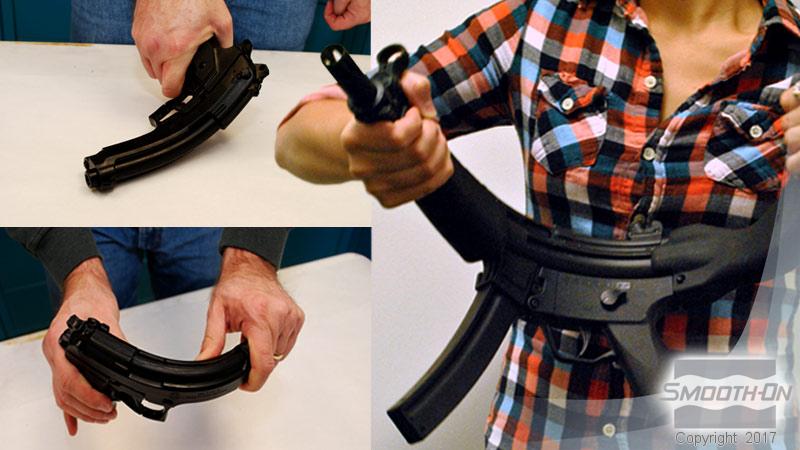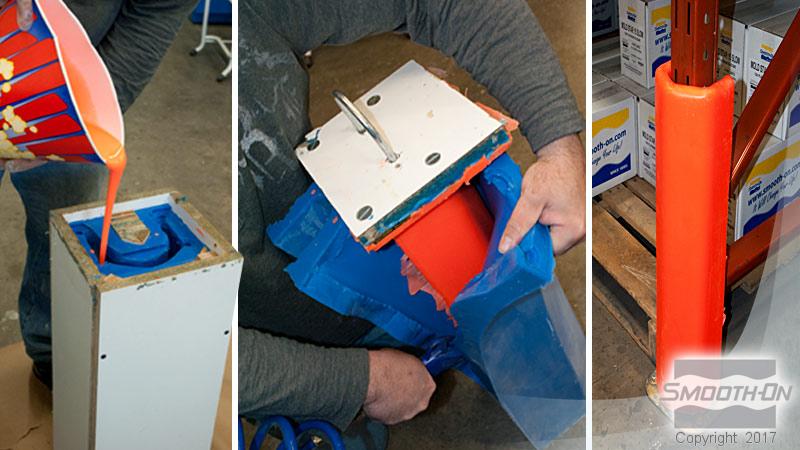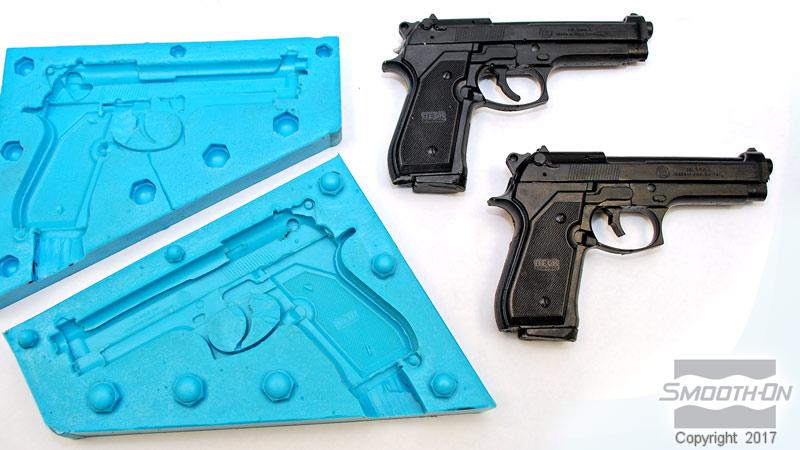TASK™ 16
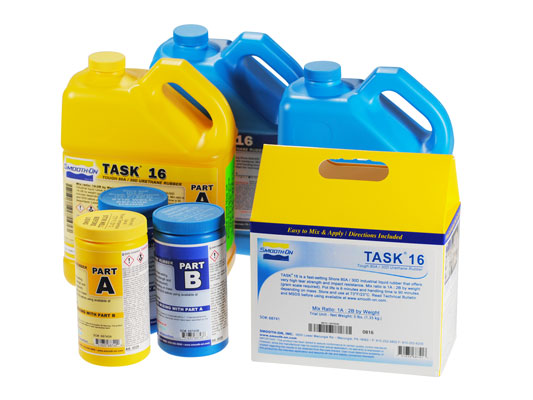
TASK™16适用于制造快速机械部件、垫圈、轮子和滑轮、抗冲击支撑和档案主模型。也可用来制造快速,耐磨的橡胶模具,用于浇铸混凝土或混凝土压印模具。TASK™16也是用于旋转浇注中空半刚性浇注件的理想选择。
重要提示: 固化的TASK™16会抑制液态铂金硅胶的固化。不能将铂金固化硅胶倒入固化的TASK™16中。如果打算将硅胶注入固化的TASK™16,则必须使用锡固化硅树脂。
说明
Applying A Release Agent - A release agent is necessary to facilitate demolding when casting into or over most surfaces. Use a release agent made specifically for mold making (Universal™ Mold Release or Mann’s Ease Release™ 200 available from Smooth-On or your Smooth-On distributor). A liberal coat of release agent should be applied onto all surfaces that will contact the plastic.
IMPORTANT: To ensure thorough coverage, apply release and brush with a soft brush over all surfaces. Follow with a light mist coating and let the release agent dry for 30 minutes.
Smooth-On silicone rubber molds usually do not require a release agent unless casting silicone into the mold. Applying a release agent will prolong the life of the mold.
Selecting A Mold Rubber - Pour into a urethane rubber mold (release agent required) or a silicone rubber mold. To prevent cure inhibition, post-cure newly made tin silicone molds for 8 hours at 60°C/150°F and let cool prior to casting resin. If you are unsure about surface compatibility, a trial casting should be made.
Because no two applications are quite the same, a small test application to determine suitability for your project is recommended if performance of this material is in question.
MEASURING & MIXING...
Liquid urethanes are moisture sensitive and will absorb atmospheric moisture resulting in bubbles in the cured rubber. Mixing tools and containers should be clean and made of metal or plastic.
Shelf life of product is drastically reduced after opening. Immediately replacing the lids on the containers after dispensing product will prolong the shelf life of the unused product. XTEND-IT™ Dry Gas Blanket (available from Smooth-On) will prolong the shelf life of unused liquid urethane products.
IMPORTANT: Pre Mix the Part B before using every time.
Measuring - An accurate gram scale is required to measure out 1A:2B. Inaccurate measurement can result in material partially curing or not curing at all.
Hand Mixing - After weighing and dispensing the required amounts of Parts A and B into mixing container, mix thoroughly for at least 90 seconds making sure that you scrape the sides and bottom of the mixing container several times. Pour entire quantity into a new, clean mixing container and mix again as directed above.
Mechanical Mixing - drill mix using a Turbine mixer or equal for 30 seconds followed by careful hand mixing for 30 seconds as directed above. Then, pour entire quantity into a new, clean mixing container and repeat mixing procedure.
Be Aware - material pot life is 6 minutes at 73°F/23°C. Pot life at elevated temperatures will be less. Do not delay between mixing and pouring.
Although this product is formulated to minimize air bubbles when cured, vacuum degassing will further reduce entrapped air. A pressure casting technique using a pressure chamber can yield totally bubble free castings. Contact Smooth-On or your distributor for information about vacuum degassing or pressure casting.
Pouring - For best results, pour your mixture in a single spot at the lowest point of the containment field. Let the rubber seek its level. A uniform flow will help minimize entrapped air.
Curing - Allow the mold or casting to cure (at least 90 minutes) at room temperature (73°F/23°C) before demolding. Do not cure rubber in temperatures less than 65°F/18°C. Cure time can be reduced with mild heat or by adding Smooth-On Kick-It™ Cure Accelerator. This material will reach full cure in 24 hours at 73°F/23°C.
Post Curing - Although not necessary, post curing will enhance physical and performance properties. After material has cured at room temperature, heat while still in the mold to 150°F (65°C) for 4 to 8 hours. If using this rubber as a mold material, a release agent should be applied to the mold before each casting. The type of release agent to use depends on the material being cast. Contact Smooth-On or your Smooth-On distributor for more information.
Performance & Storage - Fully cured rubber is tough, durable and will perform if properly used and stored. The physical life of the rubber depends on how you use it. Contact Smooth-On directly with questions about this material relative to your application.
